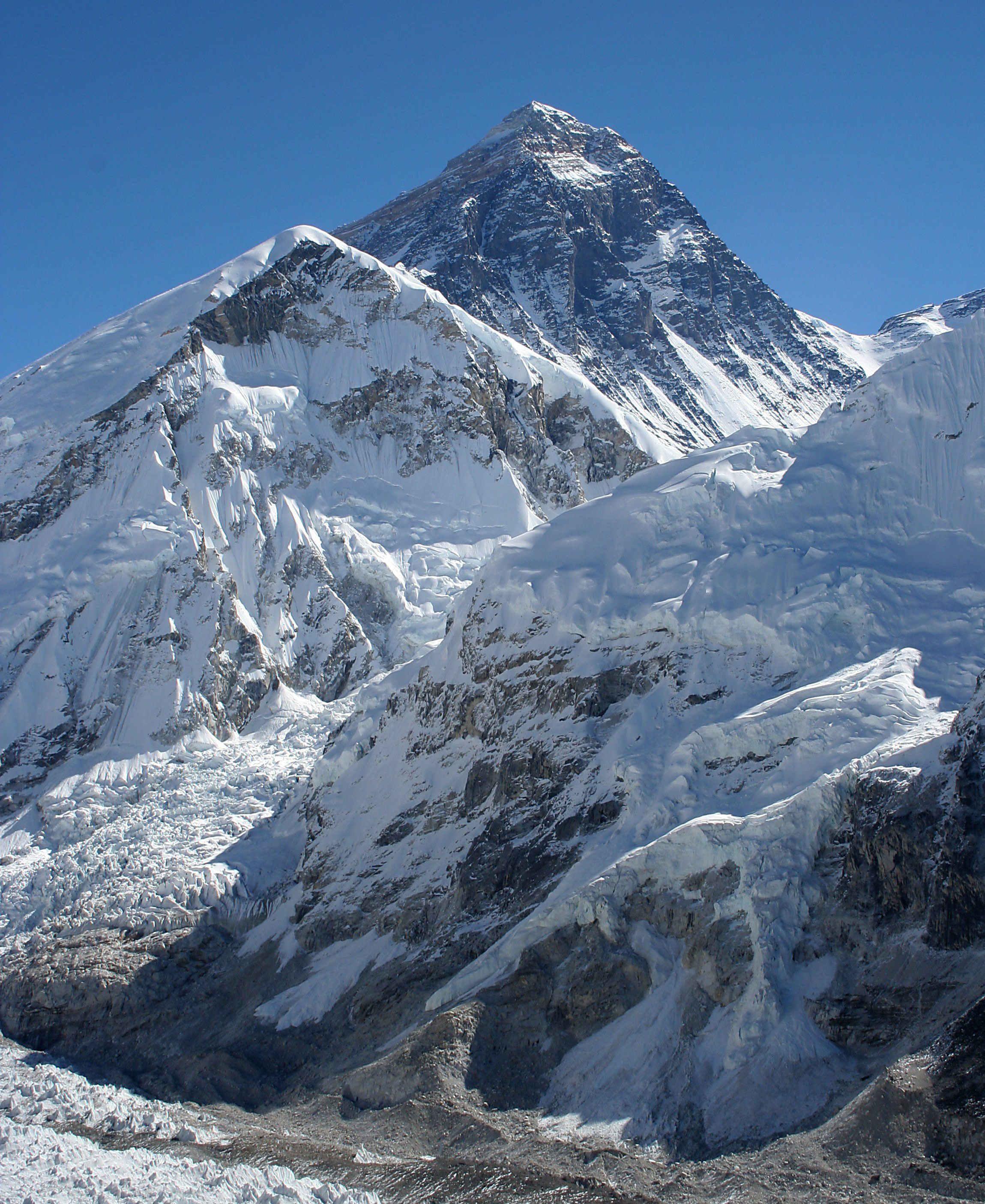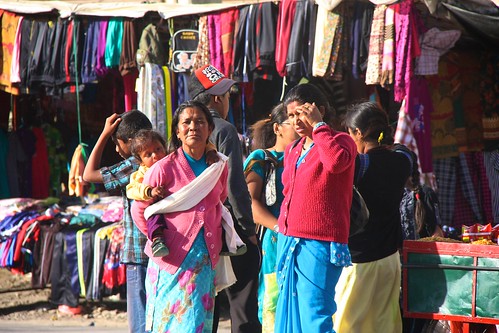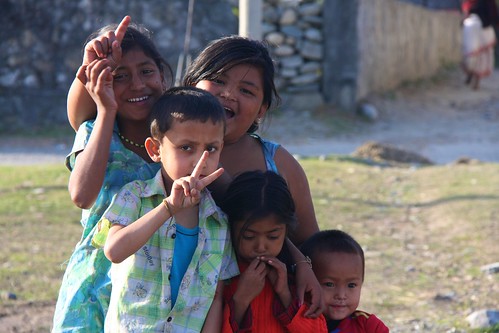Difference between revisions of "Adopting from Nepal"
(→After Adoption) |
(→Who Can Be Adopted) |
||
| Line 111: | Line 111: | ||
=Who Can Be Adopted= | =Who Can Be Adopted= | ||
| + | In addition to U.S. immigration requirements, Nepal has specific requirements that a child must meet in order to be eligible for adoption: | ||
| + | |||
| + | |||
| + | '''[[Relinquishment]]:''' Nepal will process intercountry adoptions for relinquished children. Under Nepali law, single mothers, or married mothers who have been left by their husbands, must meet stringent requirements regarding the [[relinquishment]] of their children for adoption. Birth fathers have twelve years from the child's birth to claim the child and assert [[custody]] rights. Unless a mother identifies the father and he agrees, in writing, to the child's adoption, the child will not be eligible for adoption. This can result in uncertainties as to a whether a child is actually eligible for adoption and may result in further investigations and delays. Birth parent(s) may not directly relinquish their child to an orphanage. Any [[relinquishment]] must be done through the Child Welfare Authority at the Chief District Office (CDO) of each district. Each of the CDOs report directly to the Nepal Home Ministry (central government). There are 75 districts in Nepal, and each of the districts has a CDO, who is roughly equivalent in authority to a U.S. state governor. The authority to determine legal guardianship of a child has been conferred to the Child Welfare Authority operating under the CDO, not the courts. There is a court [[system]] in Nepal, but it does not deal with legal guardianship or adoption issues. | ||
| + | |||
| + | '''[[Abandonment]]:''' On January 5, 2011, the Government of Nepal, Ministry of Women, Children and Social Welfare in its Notice No. 1 announced that children found by the police will not be available for intercountry adoption until further notice. | ||
| + | |||
| + | '''Age of Adoptive Child:''' Children under the age of 16 may be [[adopted]]. | ||
| + | |||
| + | '''Sibling Adoptions:''' If the prospective [[Adoptive Parents|adoptive parents]] already have a child or children, Nepal government regulations state they only match a Nepali child of the opposite sex of their biological child or children. Siblings of the opposite sex can be [[adopted]] together if other qualifications are met. The Government of Nepal does not have a policy to keep siblings together. | ||
| + | |||
| + | '''[[Special Needs]] or Medical Conditions:''' Children with [[Special Needs|special needs]] or medical conditions can be [[adopted]] by prospective [[Adoptive Parents|adoptive parents]] approved to [[adopt]] [[Special Needs|special needs]] children. | ||
| + | |||
| + | '''Waiting Period or Foster Care:''' Children are required to have been in the children's home for a minimum of 90 days before they are eligible to be matched for intercountry adoption. | ||
| + | |||
| + | '''Caution:''' Prospective [[Adoptive Parents|adoptive parents]] should be aware that not all children in orphanages or children’s homes are adoptable. In many countries, birth parents place their child(ren) temporarily in an orphanage or children’s home due to financial or other hardship, intending that the child return home when this becomes possible. In such cases, the birth parent(s) have rarely relinquished their [[Parental Rights|parental rights]] or consented to their child(ren)’s adoption. | ||
=How to Adopt= | =How to Adopt= | ||
Revision as of 05:04, 6 April 2014
Contents
Nepal Adoption Alert
Notice:No U.S. Adoption Service Providers Currently Authorized to Facilitate Adoptions in Nepal (July 17, 2013)
The Nepali Ministry of Women and Child Social Welfare (MWCSW) informed the U.S. Embassy in Kathmandu that as of July 1, 2013, no U.S. adoption service providers (ASP) are authorized to facilitate adoptions in Nepal. According to the MWCSW, the authorization of all adoption service providers expired on December 31, 2012. The Ministry also informed the Department that no U.S. ASPs have submitted a new application or an application to renew their authorization for the two-year period beginning on January 1, 2013.
While Nepal's adoption regulations (the Terms and Conditions and Process for Granting Approval for Adoption of Nepali Children by an Alien, 2008) permit Nepali authorized ASPs and foreign missions to submit dossiers on behalf of prospective adoptive parents, the U.S. Embassy in Kathmandu cannot execute "cover letters" or submit dossier documents to the Ministry of Women and Child Social Welfare (MWCSW) on behalf of prospective adoptive parents or otherwise serve as a de facto ASP for prospective adoptive parents. Therefore, it will not be possible for prospective adoptive parents to file an application to adopt a Nepali child until a U.S. ASP applies for and receives authorization to facilitate adoptions in Nepal in 2013-2014.
Prospective adoptive parents should also be aware that, on August 6, 2010, the U. S. Department of State and U.S. Citizenship and Immigration Services (USCIS) suspended processing of new adoption cases from Nepal involving children reported as abandoned because documents presented in support of the abandonment of these children in Nepal were unreliable. Cases involving relinquishment by known birth parent(s) were not affected by the suspension.
The U.S. Embassy in Kathmandu continues to encourage the Government of Nepal to work with the international community, including the Hague Permanent Bureau, to implement the Hague Adoption Convention and reform its adoption process to protect children and families.
We will continue to provide updates through adoption.state.gov as additional information is received. This link will also provide additional information and past adoption notices and alerts on the detailed concerns found in Nepal adoptions.
Notice: U.S. Department of State Continues to Recommend Against Adopting from Nepal (December 31, 2012)
While Nepal's adoption regulations, the Terms and Conditions and Process for Granting Approval for Adoption of Nepali Children by an Alien, 2008, permit Nepali authorized adoption service providers and foreign missions to submit dossiers on behalf of prospective adoptive parents, the U.S. Embassy in Kathmandu cannot execute "cover letters" or submit dossier documents to the Ministry of Women and Child Social Welfare (MWCSW) on behalf of prospective adoptive parents or otherwise serve as a defacto adoption service provider for prospective adoptive parents.
The Nepali Ministry of Women and Child Social Welfare (MWCSW) informed the U.S. Embassy in Kathmandu that as of December 2012, there are seven U.S. adoption service providers authorized to facilitate adoptions in Nepal at this time, and another ten U.S. adoption service providers whose authorization is pending payment of a $5000 fee to the Nepal Child Right Fund. According to the MWCSW, the authorization of all adoption service providers, including those currently authorized and those with pending authorization requests, expires on December 31, 2012. The MWCSW is currently soliciting new or renewed accreditation by international adoption service providers for dossiers submitted during a two-year period beginning on January 1, 2013.
Before embarking on an adoption in Nepal, prospective adoptive parents are strongly urged to confirm with the MWCSW that their adoption service provider is authorized to facilitate adoptions in Nepal. Contact information for the MWCSW may be found on the Country Information Sheet for Nepal. A copy of the MWCSW’s current list of Nepali authorized foreign adoption service providers may be obtained by writing to the U.S. Embassy at adoptionsnepal@state.gov.
By way of background, on August 6, 2010, the U. S. Department of State and U.S. Citizenship and Immigration Services (USCIS) suspended processing of new adoption cases from Nepal involving children claimed to have been found abandoned because documents presented in support of the abandonment of these children in Nepal were unreliable. Cases involving relinquishment by known birth parent(s) were not affected by the suspension. In December 2011, the Government of Nepal informed the U.S. Department of State that there may be a small number of children who will be found eligible for intercountry adoption by the Government of Nepal as relinquishment cases. The U.S. Department of State continues to strongly recommend that prospective adoptive parents refrain from adopting children from Nepal due to grave concerns about the reliability of Nepal’s adoption system and credible reports that children have been stolen from birth parents, who did not intend to irrevocably relinquish parental rights as required by INA 101(b)(1)(F). We also strongly urge adoption service providers not to accept new applications for adoption from Nepal.
The U.S. Embassy in Kathmandu continues to encourage the Government of Nepal to work with the international community, including the Hague Permanent Bureau, to implement the Hague Adoption Convention and reform its adoption process to protect children and families.
We will continue to keep you updated through adoption.state.gov as additional information is received. This link will also provide additional information and past adoption notices and alerts on the detailed concerns found in Nepal adoptions. Please refer to USCIS.gov for Special Instructions for How and When to File Adoption Petitions on Behalf of Nepali Children.
Hague Convention Information
Nepal is not party to the Hague Convention on Protection of Children and Co-operation in Respect of Intercountry Adoption(Hague Adoption Convention). Intercountry adoptions of children from non-Hague countries are processed in accordance with 8 Code of Federal Regulations, Section 204.3 as it relates to orphans as defined under the Immigration and Nationality Act, Section 101(b)(1)(F).
On August 6, 2010, the U. S. Department of State and United States Citizenship and Immigration Services (USCIS) suspended processing of new adoption cases from Nepal involving children claimed to have been found abandoned because documents presented in support of the abandonment of these children in Nepal were unreliable. Cases involving relinquishment by known birth parent(s) were not affected by the suspension.
Due to concerns regarding the reliability of Nepal's adoption system, any relinquishment cases received by the U.S. Embassy in Kathmandu will require complex investigations, which may include birth parent interviews and DNA testing. Although we have not yet received any such cases, and cannot estimate the amount of time needed for any individual investigation, we caution that investigations may require significant time and expenses that would likely raise the overall costs for prospective adoptive parents.
Prospective adoptive parents are strongly encouraged to read the December 31, 2012 notice concerning adoptions in Nepal before making a decision to pursue an adoption in Nepal.
U.S. IMMIGRATION REQUIREMENTS FOR INTERCOUNTRY ADOPTIONS
To bring an adopted child to the United States from Nepal, you must meet eligibility and suitability requirements. The U.S. Department of Homeland Security, U.S. Citizenship and Immigration Services (USCIS) determines who can adopt under U.S. immigration law.
Additionally, a child must meet the definition of orphan under U.S. immigration law in order to be eligible to immigrate to the United States on an IR-3 or IR-4 immigrant visa.
Who Can Adopt
In addition to U.S. immigration requirements, you must also meet the following requirements in order to adopt a child from Nepal:
Residency
None.
Age of Adopting Parents
The age difference between the prospective parents and the prospective adoptive child must be at least 30 years.
Marriage
The couple must have been married for at least four years prior to filing an adoption application. Single women between the age of 35 and 55 may also adopt. Single men may not adopt.
Income
Prospective adoptive parents must submit financial statements that certify property and income sources. No minimum amount of income is stated in the requirements.
Other
None.
Who Can Be Adopted
In addition to U.S. immigration requirements, Nepal has specific requirements that a child must meet in order to be eligible for adoption:
Relinquishment: Nepal will process intercountry adoptions for relinquished children. Under Nepali law, single mothers, or married mothers who have been left by their husbands, must meet stringent requirements regarding the relinquishment of their children for adoption. Birth fathers have twelve years from the child's birth to claim the child and assert custody rights. Unless a mother identifies the father and he agrees, in writing, to the child's adoption, the child will not be eligible for adoption. This can result in uncertainties as to a whether a child is actually eligible for adoption and may result in further investigations and delays. Birth parent(s) may not directly relinquish their child to an orphanage. Any relinquishment must be done through the Child Welfare Authority at the Chief District Office (CDO) of each district. Each of the CDOs report directly to the Nepal Home Ministry (central government). There are 75 districts in Nepal, and each of the districts has a CDO, who is roughly equivalent in authority to a U.S. state governor. The authority to determine legal guardianship of a child has been conferred to the Child Welfare Authority operating under the CDO, not the courts. There is a court system in Nepal, but it does not deal with legal guardianship or adoption issues.
Abandonment: On January 5, 2011, the Government of Nepal, Ministry of Women, Children and Social Welfare in its Notice No. 1 announced that children found by the police will not be available for intercountry adoption until further notice.
Age of Adoptive Child: Children under the age of 16 may be adopted.
Sibling Adoptions: If the prospective adoptive parents already have a child or children, Nepal government regulations state they only match a Nepali child of the opposite sex of their biological child or children. Siblings of the opposite sex can be adopted together if other qualifications are met. The Government of Nepal does not have a policy to keep siblings together.
Special Needs or Medical Conditions: Children with special needs or medical conditions can be adopted by prospective adoptive parents approved to adopt special needs children.
Waiting Period or Foster Care: Children are required to have been in the children's home for a minimum of 90 days before they are eligible to be matched for intercountry adoption.
Caution: Prospective adoptive parents should be aware that not all children in orphanages or children’s homes are adoptable. In many countries, birth parents place their child(ren) temporarily in an orphanage or children’s home due to financial or other hardship, intending that the child return home when this becomes possible. In such cases, the birth parent(s) have rarely relinquished their parental rights or consented to their child(ren)’s adoption.
How to Adopt
Adoption Authority
The Process
Traveling Abroad
Applying for Your U.S. Passport
A valid U.S. passport is required to enter and leave Nepal. Only the U.S. Department of State has the authority to grant, issue, or verify U.S. passports. Getting or renewing a passport is easy. The Passport Application Wizard will help you determine which passport form you need, help you to complete the form online, estimate your payment, and generate the form for you to print-all in one place.
Obtaining Your Visa
In addition to a U.S. passport, you also need to obtain a visa. A visa is an official document issued by a foreign country that formally allows you to visit. Where required, visas are attached to your passport and allow you to enter a foreign nation. To find information about obtaining a visa for Nepal, see the Department of State's Country Specific Information.
Staying Safe on Your Trip
Before you travel, it's always a good practice to investigate the local conditions, laws, political landscape, and culture of the country. The State Department is a good place to start. The Department of State provides Country Specific Information for every country of the world about various issues, including the health conditions, crime, unusual currency or entry requirements, and any areas of instability.
Staying in Touch on Your Trip
When traveling during the adoption process, we encourage you to register your trip with the Department of State. Travel registration makes it possible to contact you if necessary. Whether there's a family emergency in the United States, or a crisis in Nepal, registration assists the U.S. Embassy or Consulate in reaching you. Registration is free and can be done online.
After Adoption
What resources are available to assist families after the adoption?
Many adoptive parents find it important to find support after the adoption. Take advantage of all the resources available to your family -- whether it's another adoptive family, a support group, an advocacy organization, or your religious or community services.
Here are some good places to start your support group search:
Child Welfare Information Gateway
North American Council on Adoptable Children
NOTE: Inclusion of non-U.S. Government links does not imply endorsement of contents.
SOURCE
Intercountry Adoption, Bureau of Consular Affairs. U.S. Department of State Country Information[1]










